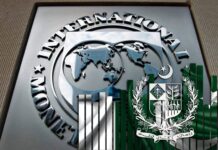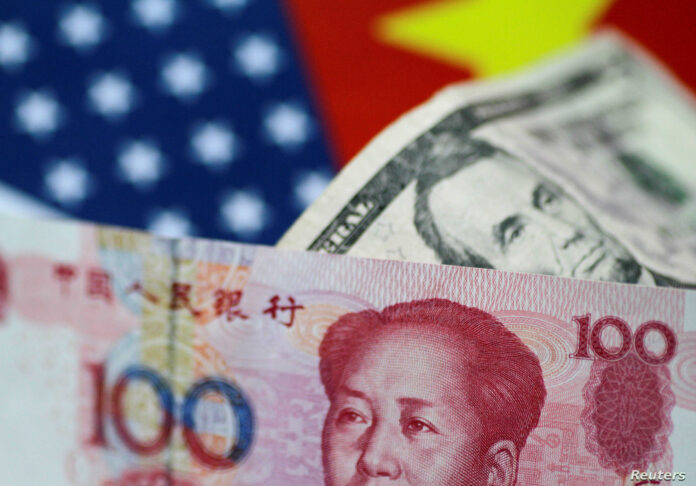Writing for The News International, author Khalid Mustafa explains that the world’s largest economies are currently debating whether the US dollar will continue to maintain its dominance in international trade, or if it will be replaced by other currencies such as China’s Yuan.
The use of the Yuan in global trade has been increasing at a slow and steady pace over the past decade, but it is still far from being a major player in international transactions.
Despite this, some experts argue that the US dollar is over-represented relative to its economic strength. The dollar accounts for 41.1% of global payments, 88% of global forex transactions, and 41.73% of the Special Drawing Rights (SDR) currency basket, even though the US economy accounts for a smaller percentage of global GDP. China’s currency, on the other hand, accounts for just 2.19% of global payments, 3.5% of global forex transactions, and 2.76% of central bank reserves, and 12.28% of the SDR basket.
Although the Yuan’s reach is still relatively low compared to China’s roughly 18% share of global GDP, the country has been taking steps to increase its use in international trade. One such step was the launch of yuan-denominated trade settlements a decade ago, which helped increase the currency’s overseas use.
Some reports in well-read newspapers like the Washington Post, Wall Street Journal, and Al Jazeera suggest that a rebellion against the King Dollar is brewing. However, the dollar’s unique status in the global financial system makes it difficult for other currencies to replace it.
Recent developments, such as the trade war between the US and China, and the sanctions imposed on Russia, have led to the adoption of other currencies in trade transactions. China’s currency has been increasingly used in trade transactions with Russia, and the renminbi surpassed the dollar in monthly trading volume on the Moscow Exchange for the first time in February 2023. The Russian Finance Ministry has also converted its market operations to the renminbi instead of the dollar and developed a new structure for the national wealth fund to hold 60% of its assets in renminbi.
Saudi Arabia has also flirted with the idea of pricing its oil in Yuan, while India is settling most of its oil purchases from Russia in non-dollar currencies. India’s commerce secretary Sunil Barthwal recently announced that it would offer its currency as an alternative for trade to countries facing a shortage of dollars in the wake of the US Federal Reserve’s monetary policy tightening.
Despite these developments, no other currency is currently close to replacing the dollar, and its stranglehold on the global financial system could weaken only if more countries start trading in other currencies and reduce their exposure to the dollar. If the unique status of the dollar wanes, America could face a reckoning like none before, as its politicians have gotten used to spending without concerns about deficits, and the Federal Reserve has solved a series of financial crashes by massively expanding its balance sheet.
To read the full article visit www.thenews.com.pk

























